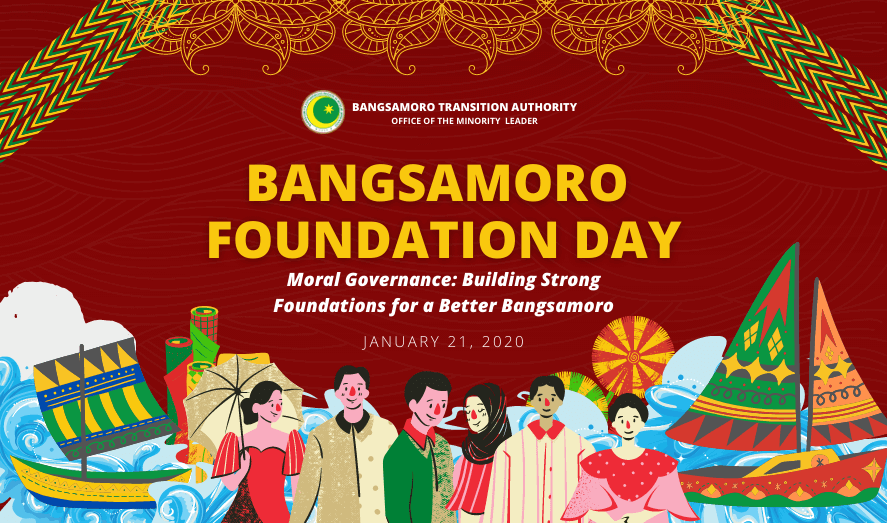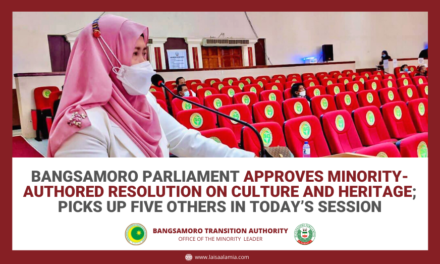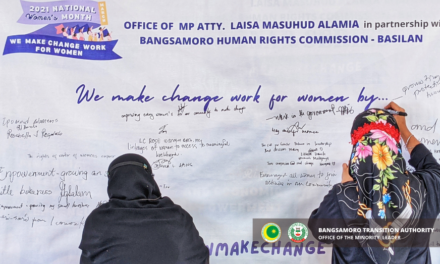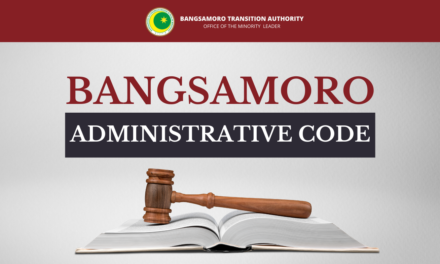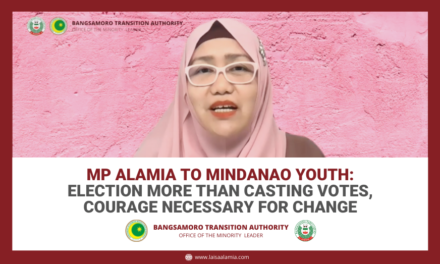It was not too long ago when ours was a land of yearning. The constant fear, grief, and economic instability in a region torn by conflict was a reality that many had to face. The needs of the marginalized were often buried and forgotten, and their cries for help were repeatedly drowned out by stronger, more prominent political voices. For decades, our people fought against an unjust system that sought to rule, but did not govern; that wanted to impose, but did not listen.
The struggle for autonomy involved everyone—the mujahideen, in their selfless bravery, and all Moros, in their humble courage and determination. Among them were the poor and marginalized, who had dreamt of a brighter future for themselves and their children, but were hardly ever recognized.
That dream was brought closer to reality when the plebiscite came. Most, if not all of the women, the elderly and the youth, the differently-abled, the victims of war, the internally displaced, the indigenous peoples, the farmers and peasants, and the urban and rural poor trooped to polling centers and voted for ratification and inclusion. Despite years of repression and mistreatment, they found the courage to make their voices heard. On that day, they helped bring to life a government that would listen and act on their needs. On that day, they chose hope.
The victory at the plebiscite was a big milestone in the peace process. It also helped that it received institutional support. The leaders and employees of the previous regional government did not just overwhelmingly vote for the ratification, they also went beyond in facilitating a smooth transition that they, too, aspire for.
Finally, those neglected in society now had a chance to be represented in government policies and decisions. Since then, the Parliament has served as a fertile ground for highlighting sector-specific issues and concerns, and enacting carefully-tailored measures in response.
Major strides have been made since the journey began two years ago. The minority bloc of the Parliament, headed by Minority Floor Leader and MP Atty. Laisa Alamia, has been steadfast in pushing for progressive legislation and programs that focus on the interests and welfare of those who need help the most.
Among these is the IDP Rights Bill, which seeks to protect the rights of internally displaced persons, indigenous peoples, and women and girls. It was filed by MP Alamia in response to the current gap in the law, as well as the overwhelming prevalence of internal displacement in the region.
Also filed was the Transitional Justice Package, a set of laws that will operationalize the region’s transitional justice and reconciliation mechanisms in view of social protection. It includes initiatives that will document serious human rights abuses; provide pensions for ex-combatants and veterans; establish a health card program for war survivors and indigents; uphold and protect IDP rights; and secure socio-economic support for war survivors, especially widows and orphans.
The formation of a women’s caucus was similarly advanced, with the goal of organizing, consolidating, and fostering support among all women MPs in Parliament. It also involved creating a Women’s Legislative Agenda that responds to issues primarily concerning women, gender equality, and gender development, and paving the way for collaboration with civil society and local communities.
In response to the needs of children in conflict with the law (CICLs) and those at risk, MP Alamia has pushed for the construction of the first Bahay Pag-asa (BPA) in BARMM, set to break ground in Basilan in February 2021. Other BPAs in every province of the region are planned to follow, to be financed by the Transitional Development Impact Fund.
While there has been significant progress in giving voice to the poor and marginalized, there is still a long way to go. The list of problems that require solutions continues to grow longer, with the emergence of many new and complex issues, both local and national. Still, the region is best served by leaders and institutions who know the problems on the ground, and are intimately tied to their constituencies—a true government of the Moros, for the Moros, and by the Moros.
All in all, we welcome January 21 with great joy because on this day, two years ago, all of our sacrifices bore fruit. Our flag flies proudly as a symbol of hope and progress, and as a reminder of triumph for the marginalized. The founding of the Bangsamoro Government, marked by the approval of the Organic Law through a plebiscite, did not just bring an end to years of violence. It also signalled the beginning of a new era of social justice and lasting peace.

